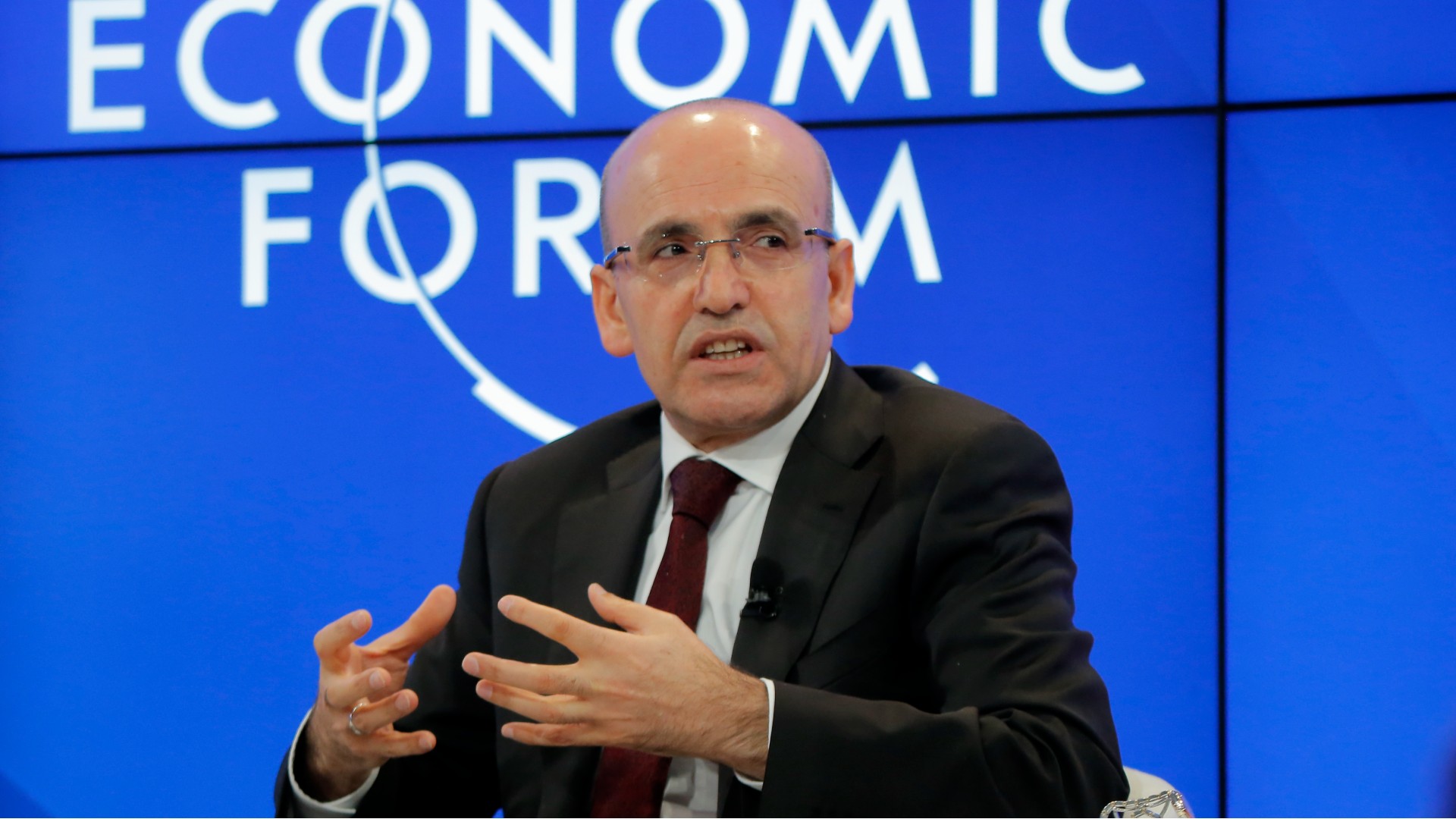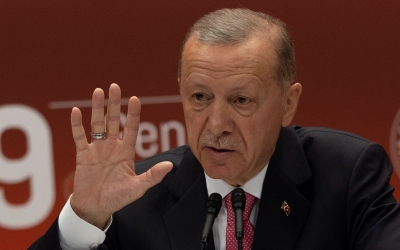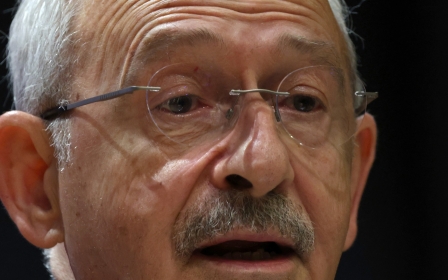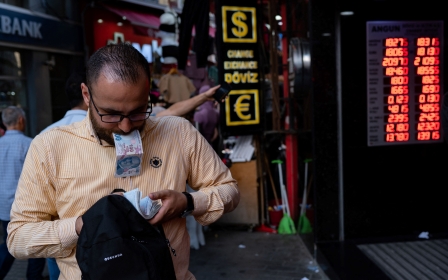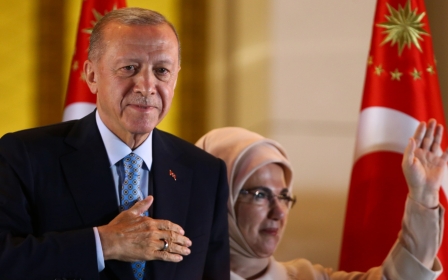Turkey: Erdogan’s tough options on the economy
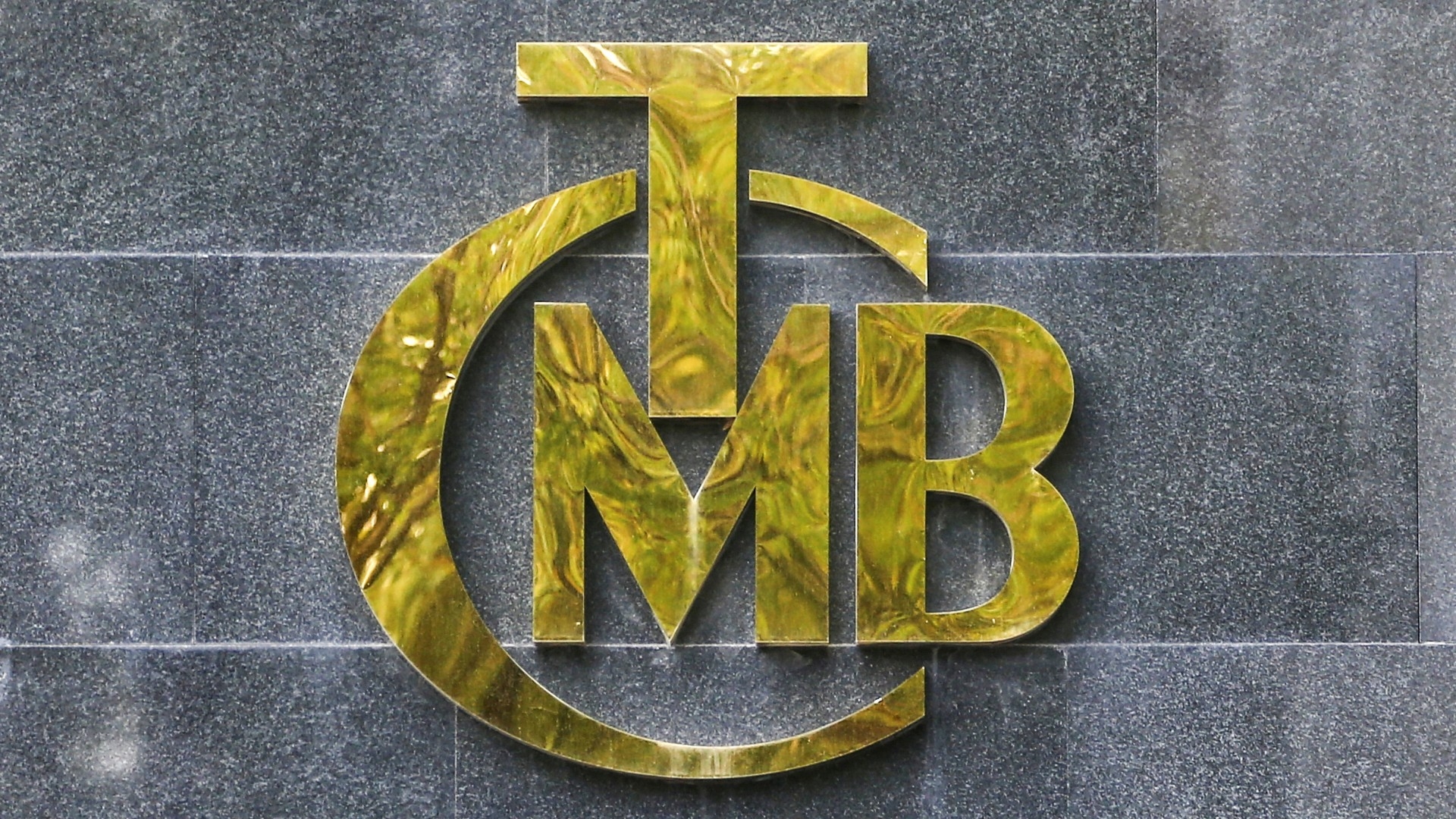
Turkish President Recep Tayyip Erdogan is still yet to indicate which economic route he will favour over the coming weeks and months, following a comfortable election victory.
His insistence on low interest rates triggered runaway inflation last year, an issue that continued to drag on last month reaching around 43 percent.
Attempts to stabilise the Turkish lira through backdoor methods, like currency swaps with local banks, caused the Central Bank to burn through all its foreign net reserves, posting a balance of $151.3m in the red as of 19 May.
A depreciating lira could have been costly for Erdogan before the parliamentary and presidential elections, which concluded with a runoff on 28 May. That’s why every effort was made to prevent that from happening. Now things are moving.
With low reserves and the elections over, the Central Bank has relaxed its defence of the currency, prompting the US dollar to surge by more than three percent against the lira since Monday.
Erdogan this week said his intention is to solidly manage the economy based on trust and stability, adding that he is aiming to design an internationally reputable financial management plan for the country that would attract investment and nurture an employment-oriented manufacturing economy.
"We are determined to take steps to compensate for the loss of welfare experienced in different parts of our society,” he told business leaders in Ankara on Wednesday.
Erdogan added that his government has a track record of fighting inflation, referring to the 2002-2018 period of his rule.
“We were the ones who relieved our people by reducing the high inflation issue, which had been a headache for the Turkish economy for years, to single digits, and we will do again.”
Freshen up the team
But what are his options?
The first route is appointing a new and credible economy management team, including a finance minister and a Central Bank governor.
Sources familiar with Erdogan’s thinking told Middle East Eye that he was contemplating recruiting Mehmet Simsek, a former economy minister and darling of the markets.
Simsek met Erdogan on Monday night, but it isn’t a done deal yet.
“The president is really adamant about low interest rates,” one person familiar with the issue told MEE. “They can agree on anything but hiking interest rates continue to be an issue.”
The sources said that Simsek had been trying to convince the president to give him a free hand on monetary policy for at least 18 months and wants Erdogan to bring in new ministers closely aligned with his thinking.
“He proposes a gradual increase of interest rates so it wouldn’t be too costly for businesses,” the source said. “He would like to hike the rate from its current 8.5 percent level to as high as 25 percent in time.”
A spokesperson for Simsek declined to comment on the issue.
But there are concerns about whether Erdogan - even if he accepts such a move - would stick with such a policy.
Erdogan is already eying municipal elections in March 2024. And though austerity measures would help bring inflation under control, they could also create unemployment and certain liquidity problems for businesses, which could be problematic for the president at the ballot box.
Wolf Piccoli, a long-term Turkey expert at consultancy firm Teneo, said that if Erdogan changes course and revamps his economic team with credible names, it could freshen the air for international investors.
“There is absolutely the chance of portfolio inflows coming into Turkey,” he told MEE. “That is mainly because in lots of other emerging markets the situation is even more difficult and it's difficult to locate money.”
But Piccoli warns that when it comes to Erdogan the risk always remains: he could sack Simsek or whoever else is appointed finance minister after seeing a decline of support for his Justice and Development Party (AKP) after an initial post-election honeymoon period.
The Turkish president has a history of chopping and changing his economic team.
Timothy Ash, a senior sovereign strategist at Bluebay Asset Management, agrees. He said the markets would think Erdogan could fire Simsek anytime.
'Markets like and trust Simsek but they do not trust Erdogan to give him a mandate to actually sort the balance of payments problems'
- Timothy Ash, senior sovereign strategist
“Markets like and trust Simsek but they do not trust Erdogan to give him a mandate to actually sort the balance of payments problems,” Ash told MEE. “Rate hikes are needed to slow down the import demand.”
Turkey's trade deficit widened by 44 percent in April, reaching $8.85bn compared with $6.15bn the previous year. Ash calculates that Turkey is in need of $230bn plus gross financing needs in the near term.
Ash added that Simsek or anyone else could get away with less aggressive rate hikes if they hired a credible governer for the Central Bank.
Piccoli said Erdogan needs tools to decisively fight inflation and he needs an interest rate that is on par with inflation. Erdogan has promised to make a substantial increase to the minimum wage in July and there will be an additional inflationary impact of credit growth made during the election campaign.
“Even an interest rate up to 25 percent might provide a signal, but I suspect that it could be considered as a timid response by the markets,” Piccoli said. “The impact of the response will obviously also depend on the wider context.”
Piccoli said there are various ways Erdgoan could send a good signal to investors: he could promise to undertake structural reforms, such as in the labour market or tax system. He could also show progress in relations with Washington, or lift Turkey’s veto on Sweden’s accession to Nato.
“The context here is also important,” Piccoli said.
Let the lira run
Senior Turkish officials surrounding Erdogan believe that there must be a U-turn in monetary and economic policy. “He has changed his mind on foreign policy once,” a senior Turkish official told MEE in April. “So, he could change his mind on the economy. Everyone is trying.”
But there remains the possibility that Erdogan won’t follow this advice and will instead maintain his unorthodox monetary policy.
If he doesn’t change his opinion on interest rates, what are his options?
Not many, according to Piccoli, other than letting the US dollar run its course and watching the lira depreciate.
Currently, the lira is trading at 20 to the dollar. Erdogan might need to take it up to 25 lira per dollar to satisfy Turkish exporters, who say they are disadvantaged compared to international competitors as the Central Bank’s interventions mean the lira is overvalued.
“They can try to tighten credit and liquidity with further regulation,” Piccoli said. “And also the summer season should help to bring some foreign currency in, and that could allow them to muddle through until basically the fall.”
Turkey received $46.5bn in revenue from tourism last year. The bulk of that money came in during the summer holidays.
Piccoli said energy prices and international context would also be important to assess the situation, but he expects any tightening to have an impact on economic growth, which Erdogan is proud of and keen to maintain.
Last year, Erdogan funded his interest rate policy by getting multiple currency and deposit deals from Gulf Arab countries, Azerbaijan and Russia.
There are some in Ankara that believe he could call in more favours like these.
Yet Ash believes any new Gulf money would come with strings attached from now on, as can recently be seen with Egypt and Pakistan.
“The Gulf will not lend if they see bad policy settings leading to a balance of payments risks, which could mean they don’t get their money back,” he said.
“And Putin needs as much money [as possible] to save his own skin. And I think he has an interest in keeping Erdogan cash-strapped and more dependent. So no big bailouts for Erdogan.”
If Erdogan keeps interest rates low and is unable to secure money from abroad, Ash said the president will be forced to let the lira melt and risk higher inflation as a result.
That might potentially become a systemic crisis, which could trigger a broader loss of confidence in the financial system, he said.
Middle East Eye propose une couverture et une analyse indépendantes et incomparables du Moyen-Orient, de l’Afrique du Nord et d’autres régions du monde. Pour en savoir plus sur la reprise de ce contenu et les frais qui s’appliquent, veuillez remplir ce formulaire [en anglais]. Pour en savoir plus sur MEE, cliquez ici [en anglais].


